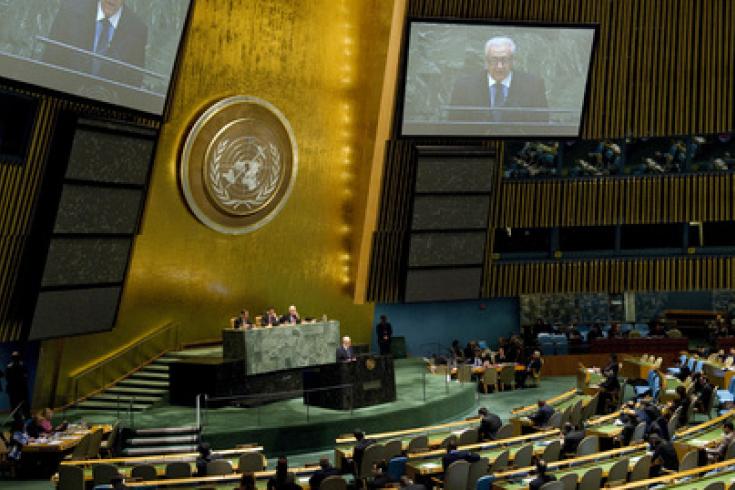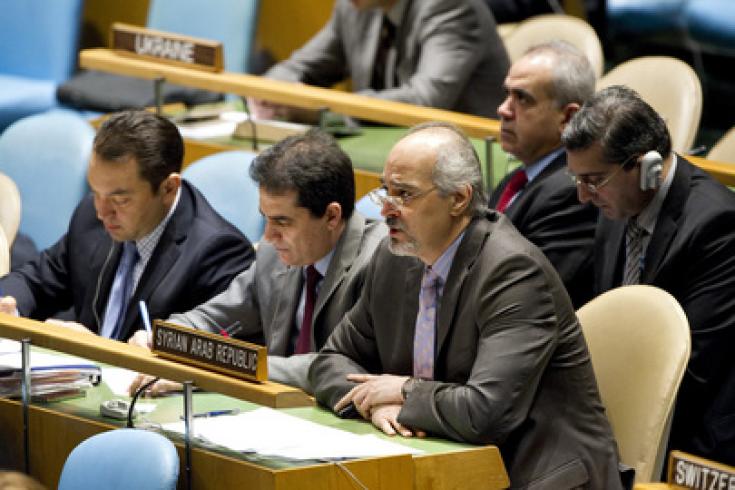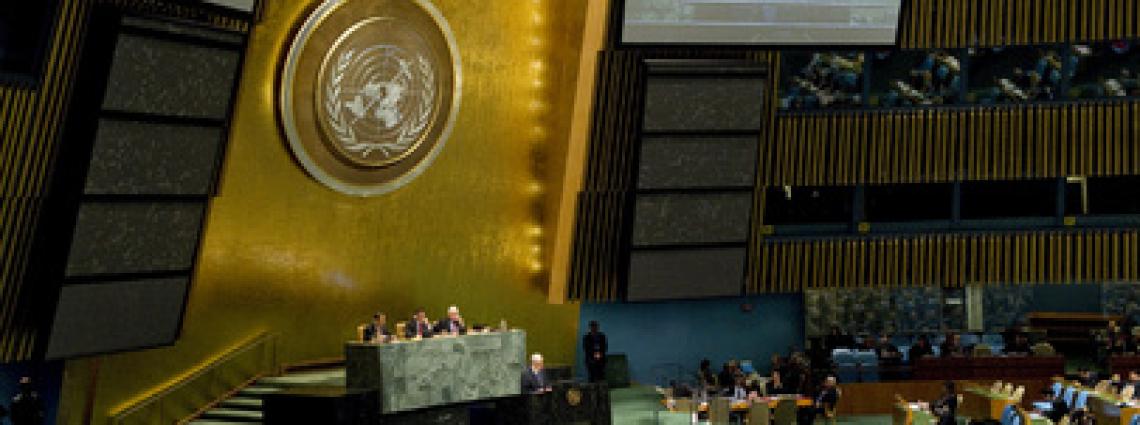Record number of countries back CTBT resolution

48th Plenum of the General Assembly
We must put an end to nuclear testing before nuclear testing puts an end to the world.
Increase since 2011

The Syrian delegation abstained from voting on the CTBT resolution, along with India and Mauritius Source: UN Photo/ Evan Schneider
The vision of a world free of nuclear weapons will never be realized if nuclear testing is allowed to continue.
Support for the CTBT expression also in other resolutions
The resolutions of the General Assembly are not legally binding, but are important recommendations that show the political stance of UN Member States on the issues concerned. There were three further resolutions stressing the importance of the CTBT on: Nuclear Disarmament (PDF), Towards a Nuclear-Weapon-Free World (PDF), and the Follow-up to the advisory opinion of the International Court of Justice on the Legality of the Threat or Use of Nuclear Weapons (PDF).
The General Assembly meeting came two months after the Ministerial Meeting on the CTBT, which issued a joint statement (PDF) stressing the importance of the CTBT as a “vital step” towards nuclear disarmament. United Nations Secretary-General Ban Ki-moon told the States that have yet to sign or ratify the CTBT: “You are failing to live up to your responsibility as a member of the international community.”
Taking into account the number of States Signatories, the Comprehensive Test Ban Treaty represents a nearly universal norm.
7 Dec 2012
